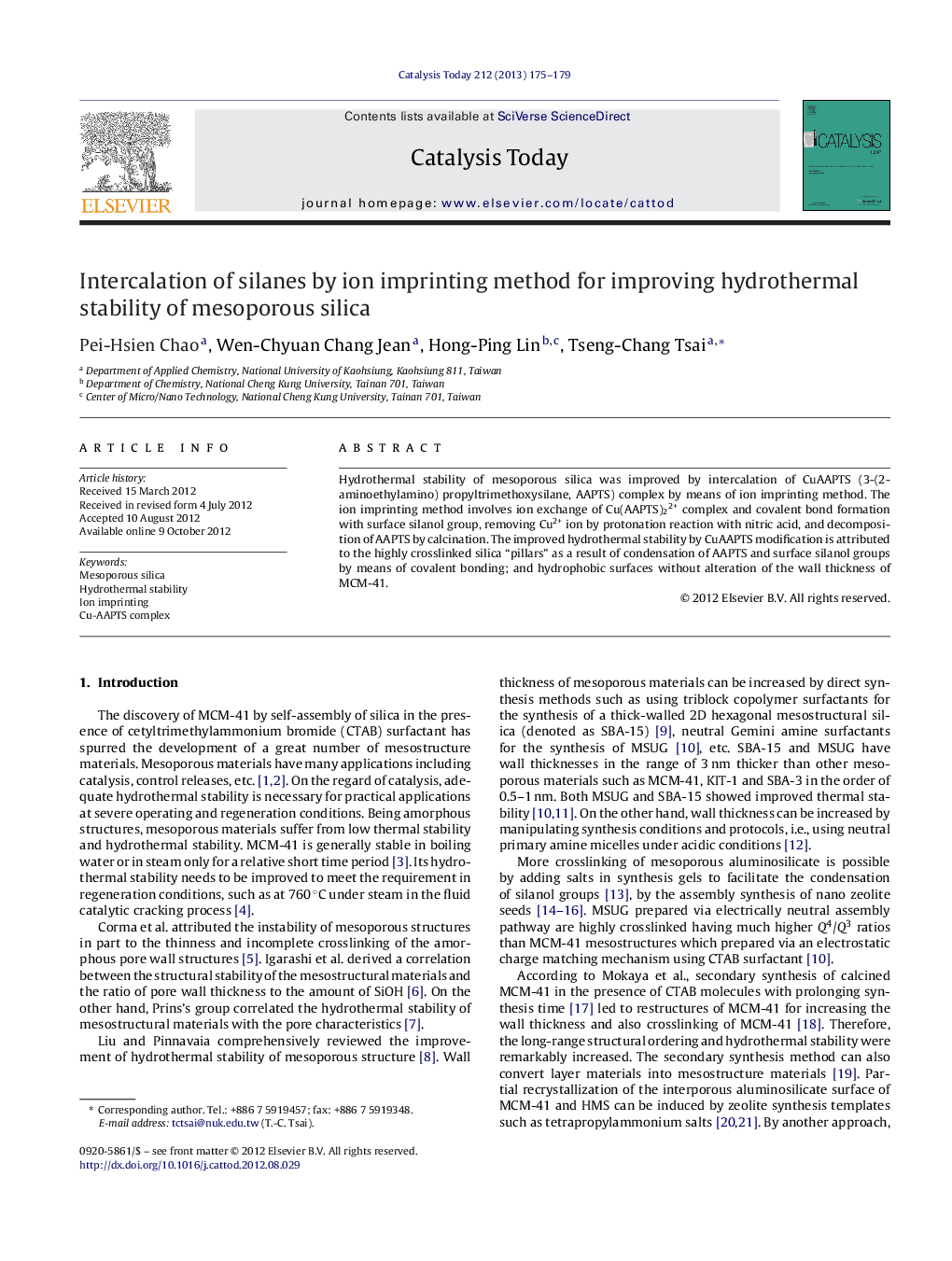| Article ID | Journal | Published Year | Pages | File Type |
|---|---|---|---|---|
| 54823 | Catalysis Today | 2013 | 5 Pages |
Hydrothermal stability of mesoporous silica was improved by intercalation of CuAAPTS (3-(2-aminoethylamino) propyltrimethoxysilane, AAPTS) complex by means of ion imprinting method. The ion imprinting method involves ion exchange of Cu(AAPTS)22+ complex and covalent bond formation with surface silanol group, removing Cu2+ ion by protonation reaction with nitric acid, and decomposition of AAPTS by calcination. The improved hydrothermal stability by CuAAPTS modification is attributed to the highly crosslinked silica “pillars” as a result of condensation of AAPTS and surface silanol groups by means of covalent bonding; and hydrophobic surfaces without alteration of the wall thickness of MCM-41.
Graphical abstractFigure optionsDownload full-size imageDownload high-quality image (110 K)Download as PowerPoint slideHighlights► Mesoporous silica with improved steam stability at 760 °C. ► Intercalation of AAPTS inside mesoporous channel by ion imprinting method. ► Improving hydrothermal stability due to pillars of crosslinking silica and hydrophobicity.
